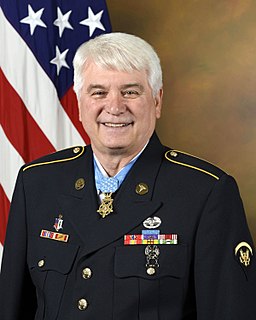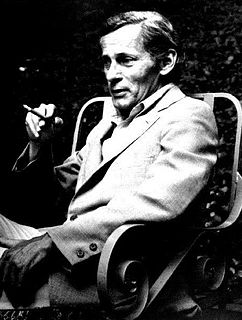A Quote by Henry David Thoreau
The way in which men cling to old institutions after the life has departed out of them, and out of themselves, reminds me of those monkeys which cling by their tails - aye, whose tails contract about the limbs, even the dead limbs, of the forest, and they hang suspended beyond the hunter's reach long after they are dead. It is of no use to argue with such men. They have not an apprehensive intellect, but merely, as it were a prehensile tail.
Related Quotes
Freedom is the essence of this faith. It has for its object simply to make men good and wise. Its institutions then should be as flexible as the wants of men. That form out of which the life and suitableness have departed should be as worthless in its eyes as the dead leaves that are falling around us.
Men who profess a state of neutrality in times of public danger, desert the common interest of their fellow subjects; and act with independence to that constitution into which they are incorporated. The safety of the whole requires our joint endeavours. When this is at stake, the indifferent are not properly a part of the community; or rather are like dead limbs, which are an encumbrance to the body, instead of being of use to it.
Thus I progressed on the surface of life, in the realm of words as it were, never in reality. All those books barely read, those friends barely loved, those cities barely visited, those women barely possessed! I went through the gestures out of boredom or absent-mindedness. Then came human beings; they wanted to cling, but there was nothing to cling to, and that was unfortunate--for them. As for me, I forgot. I never remembered anything but myself.
Dying visions of angels and Christ and God and heaven are confined to credibly good men. Why do not bad men have such visions? They die of all sorts of diseases; they have nervous temperaments; they even have creeds and hopes about the future which they cling to with very great tenacity; why do not they rejoice in some such glorious illusions when they go out of the world?
Say a word, say a thousand to me on the telephone and I shall choose the wrong one to cling to as though you had said it after long deliberation when only I provoked it from you, I will cling to it from among a thousand, to be provoked and hurl it back with something I mean no more than you meant that, something for you to cling to and retreat clinging to.
I was acquainted once with a gallant soldier who assured me that his only measure of courage was this: upon the first fire, in an engagement, he immediately looked upon himself as a dead man. He then bravely fought out the remainder of the day, perfectly regardless of all manner of danger, as becomes a dead man to be. So that all the life or limbs he carried back again to his tent he reckoned as clear gains, or, as he himself expressed it, so much out of the fire.
It is so much easier to deal with the dead than with the living. The dead are out of the way, merely characters from stories about the past, never again unreadable, no misunderstandings possible, the pain coming from them stable and manageable. nor do you have to explain yourself to them, to justify the fact of your life.


































